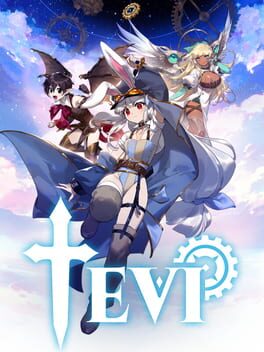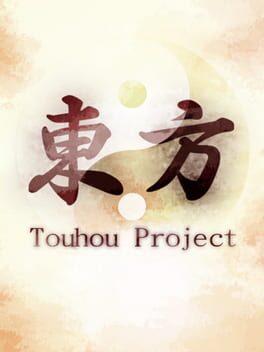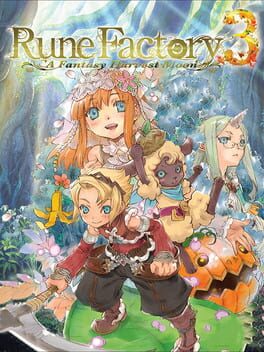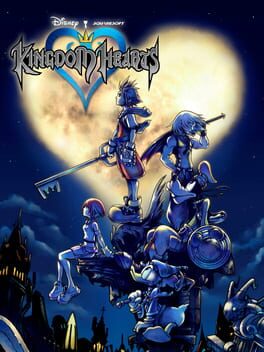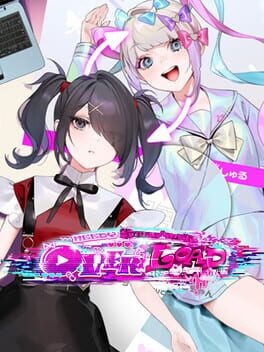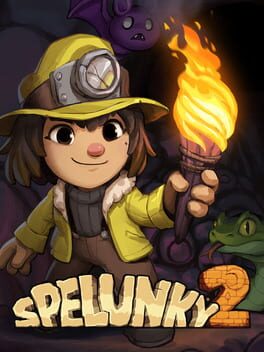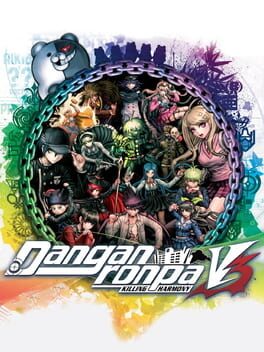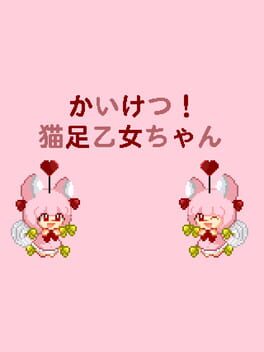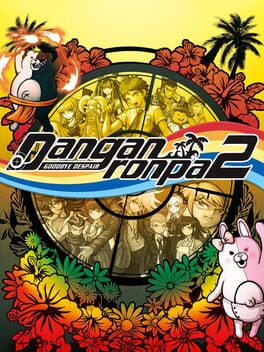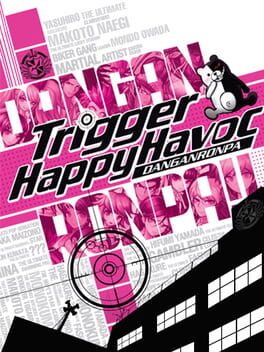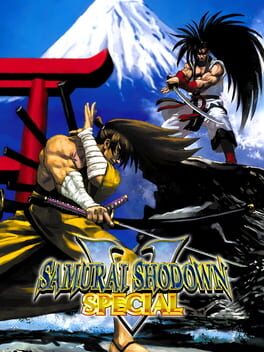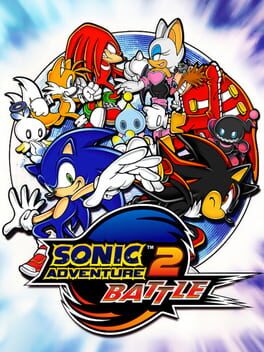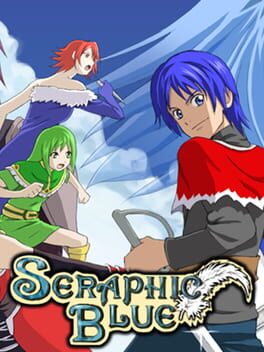TouhouEnjoyer
2023
To me, Rabi Ribi is a masterpiece, and one of my favorite games of all time. It's hard as nails, has tons of fun secrets, a deep combat system, and freedom of exploration in a genre known for overwhelming players with what they can’t do. It's easy to see just how much it bucked traditional metroidvania trends from just playing it for a few minutes. You start the game with two wall jumps, you unlock most of your combat abilities very fast, and Quick Drop provides quite decent mobility from the beginning. What made Rabi Ribi stand out was that it was indulgent in a way that spoke to GemaYue’s particular design sense. It was confident -- it knew what it was and challenged you to get on its wavelength. As a result, it was often obtuse, with major mechanics being left up entirely to player discovery, a bold philosophy you can only get from a genuinely passionate capital G Gamer who wants to share his vision of fun to the world; one reminiscent of games before the Internet spoiled their every little secret.
Maybe you're expecting me to start bemoaning Tevi’s lack of ‘soulkino’ or whatever right about now, but really, even though it sacrificed the freedom and intentional jank for more curation and tutorializing, this is a great follow-up to Rabi Ribi from a gameplay perspective. There are more helping hands to accommodate new players, like Core Expansion, numerous sources of healing, bosses being more exploitable, and the existence of Golden Dodge, but it's still a challenging, and most importantly, FUN experience due to all of the new toys at your disposal. The combat depth, for one, is technically leagues above Rabi Ribi. The sheer number of Sigils, while cumbersome at times, opens up a plethora of builds to pursue, from pure melee to pure ranged to hybrid to bomb focused to combo focused, etc, and they always give you new things to think about when interacting with the mechanics. Rabi Ribi was also about the flow of dodge boss pattern > unleash big combo > prepare for boss’ retaliation > repeat, and I like that both games encourage you to keep the pressure up even during boss attacks for the sake of that all-important combo rank, but with Tevi, the moment you go in to do your thing while the boss is vulnerable, the world is your oyster. Do an airdash, smack them a few times, spanner ground pound, whirlwind spinny, airdash quintuple flash, big spanner whack, backflip, throw knives that inflict a debuff, unleash a few charge shots, whatever. This is like crack to my Rabi poisoned brain. It is every bit as gratifying as I expected.
So yes, the game was worth the wait for this combat system alone, but the movement is great too. It thankfully retains a lot of the same movement tech from its predecessor (as well as some new ones -- I hope Love Bunny retains the Quick Drop bounce idea), which makes exploring a blast. It helps that the map is freaking huge this time around, and the areas that comprise it are all quite varied and pretty to look at, with another banger soundtrack to boot. Rabi Ribi’s map was more a vehicle to connect the various bosses together, and if you found issue with that, Tevi has environmental hazards and devilish enemy placement in spades. The secrets aren’t messing around either -- it was rarely immediately obvious how to approach them (but they were still more fun to collect in Rabi Ribi due to its ‘jank’ and important gear like airdash accessible early on). Although Tevi's locales are more entertaining overall, sifting through such a massive map for items diminishes my willingness to 100% the game again, but it nonetheless gives players plenty of extrinsic motivation to explore, as not only does uncovering map tiles reward XP, but the potential resources are too useful to pass up especially on the hardest difficulties. I thought I would be annoyed by the crafting system, but it’s actually quite an elegant alternative to Rabi Ribi’s admittedly odd, loose idea of progression. You no longer need to look to enemy grinding for money, and the resources which gate item upgrades and Sigil crafting are supplied at a reasonably steady rate. If you just play through the game normally, it’s likely you will be able to fully upgrade everything well before its conclusion, though it’s not like you even need to outside of a few specific ones, as they’re mostly modular stat boosts. This heavy injection of Game Design™, for better or worse, makes Tevi feel like a more standard metroidvania experience. If you want, you can go out of your way to snag every buff potion available, equip all the powerful Sigils, upgrade your equipment, and craft all the strongest healing items, but if you want a challenge, you need to dip your toes into self-imposed handicaps. Rabi Ribi, on the other hand, never allowed the player to become too powerful due to its level scaling mechanic, which was a necessary evil to ensure the game was reasonably beatable on low item% runs while also allowing bosses to become unspeakable hellspawns when players have everything except excuses to fall back on. Tevi ditched this intense boss scaling and instead decided to tie only Bunny Potions to item%, which is a sensible move. However, because I autistically searched every nook and cranny, the game became a cakewalk around Chapter 5 (yes, on Expert mode), which kind of surprised me, but that's not to say it’s bad design, I mean, I was rewarded for my exploration. I’m just a weirdo who likes my games unreasonably hard, so Rabi Ribi’s approach is more my speed. Speaking of difficulty, Tevi unfortunately commits a similar error to Rabi Ribi by forcing players to finish the game before its hardest difficulty is unlocked, which I will never understand the point of. I guess I would want to die if I were forced to manually skip the million cutscenes before each boss a bunch more times.
Actually, on that note…
Tevi suffers from one major problem that Rabi Ribi doesn’t, and I feel it will ultimately be what strengthens my allegiance to that game as superior. Tevi doesn’t know when to shut up. Characters talk talk talk, going on and on about the lore, with endless exposition and meaningless tangents, and the dialogue is not well written enough to justify it. Neither is the story as a whole, unfortunately, despite the occasionally inspired idea. This makes it all the more frustrating because the game is entirely beholden to its story, resulting in poorer map design decisions. Sure, while a cute & charming vibe, Rabi Ribi’s plot was the furthest thing from a literary masterpiece, but at least it wasn’t an active hindrance, and the little dialogue it did have was straight and to the point. There were almost no gates between you and enjoying the game. To think that Tevi went through all this trouble to design itself around such a disappointingly barebones, subpar story is just sad, frankly. The silver lining to all this is the Free Roam and Speedrun options, which, personally, as someone who’s currently going through the game again on Speedrun mode, make the previous experience feel like a prison. I love Tevi -- when I actually get to play it, that is. Your first time through will be affronted with a plague of text boxes which may as well say “NO FUN ALLOWED” copy and pasted hundreds of times. I just couldn’t bring myself to care. Rabi Ribi has better writing than Tevi, and I will die on that hill.
GemaYue is a genius game designer, and next time, hopefully in a direct sequel to Rabi Ribi, his abilities can shine unrestrained by a story he is being compelled to tell. Until then, at the very least, I am enjoying the post-game modes more than the initial playthrough, and I trust that it will get several good DLCs in the future.
Maybe you're expecting me to start bemoaning Tevi’s lack of ‘soulkino’ or whatever right about now, but really, even though it sacrificed the freedom and intentional jank for more curation and tutorializing, this is a great follow-up to Rabi Ribi from a gameplay perspective. There are more helping hands to accommodate new players, like Core Expansion, numerous sources of healing, bosses being more exploitable, and the existence of Golden Dodge, but it's still a challenging, and most importantly, FUN experience due to all of the new toys at your disposal. The combat depth, for one, is technically leagues above Rabi Ribi. The sheer number of Sigils, while cumbersome at times, opens up a plethora of builds to pursue, from pure melee to pure ranged to hybrid to bomb focused to combo focused, etc, and they always give you new things to think about when interacting with the mechanics. Rabi Ribi was also about the flow of dodge boss pattern > unleash big combo > prepare for boss’ retaliation > repeat, and I like that both games encourage you to keep the pressure up even during boss attacks for the sake of that all-important combo rank, but with Tevi, the moment you go in to do your thing while the boss is vulnerable, the world is your oyster. Do an airdash, smack them a few times, spanner ground pound, whirlwind spinny, airdash quintuple flash, big spanner whack, backflip, throw knives that inflict a debuff, unleash a few charge shots, whatever. This is like crack to my Rabi poisoned brain. It is every bit as gratifying as I expected.
So yes, the game was worth the wait for this combat system alone, but the movement is great too. It thankfully retains a lot of the same movement tech from its predecessor (as well as some new ones -- I hope Love Bunny retains the Quick Drop bounce idea), which makes exploring a blast. It helps that the map is freaking huge this time around, and the areas that comprise it are all quite varied and pretty to look at, with another banger soundtrack to boot. Rabi Ribi’s map was more a vehicle to connect the various bosses together, and if you found issue with that, Tevi has environmental hazards and devilish enemy placement in spades. The secrets aren’t messing around either -- it was rarely immediately obvious how to approach them (but they were still more fun to collect in Rabi Ribi due to its ‘jank’ and important gear like airdash accessible early on). Although Tevi's locales are more entertaining overall, sifting through such a massive map for items diminishes my willingness to 100% the game again, but it nonetheless gives players plenty of extrinsic motivation to explore, as not only does uncovering map tiles reward XP, but the potential resources are too useful to pass up especially on the hardest difficulties. I thought I would be annoyed by the crafting system, but it’s actually quite an elegant alternative to Rabi Ribi’s admittedly odd, loose idea of progression. You no longer need to look to enemy grinding for money, and the resources which gate item upgrades and Sigil crafting are supplied at a reasonably steady rate. If you just play through the game normally, it’s likely you will be able to fully upgrade everything well before its conclusion, though it’s not like you even need to outside of a few specific ones, as they’re mostly modular stat boosts. This heavy injection of Game Design™, for better or worse, makes Tevi feel like a more standard metroidvania experience. If you want, you can go out of your way to snag every buff potion available, equip all the powerful Sigils, upgrade your equipment, and craft all the strongest healing items, but if you want a challenge, you need to dip your toes into self-imposed handicaps. Rabi Ribi, on the other hand, never allowed the player to become too powerful due to its level scaling mechanic, which was a necessary evil to ensure the game was reasonably beatable on low item% runs while also allowing bosses to become unspeakable hellspawns when players have everything except excuses to fall back on. Tevi ditched this intense boss scaling and instead decided to tie only Bunny Potions to item%, which is a sensible move. However, because I autistically searched every nook and cranny, the game became a cakewalk around Chapter 5 (yes, on Expert mode), which kind of surprised me, but that's not to say it’s bad design, I mean, I was rewarded for my exploration. I’m just a weirdo who likes my games unreasonably hard, so Rabi Ribi’s approach is more my speed. Speaking of difficulty, Tevi unfortunately commits a similar error to Rabi Ribi by forcing players to finish the game before its hardest difficulty is unlocked, which I will never understand the point of. I guess I would want to die if I were forced to manually skip the million cutscenes before each boss a bunch more times.
Actually, on that note…
Tevi suffers from one major problem that Rabi Ribi doesn’t, and I feel it will ultimately be what strengthens my allegiance to that game as superior. Tevi doesn’t know when to shut up. Characters talk talk talk, going on and on about the lore, with endless exposition and meaningless tangents, and the dialogue is not well written enough to justify it. Neither is the story as a whole, unfortunately, despite the occasionally inspired idea. This makes it all the more frustrating because the game is entirely beholden to its story, resulting in poorer map design decisions. Sure, while a cute & charming vibe, Rabi Ribi’s plot was the furthest thing from a literary masterpiece, but at least it wasn’t an active hindrance, and the little dialogue it did have was straight and to the point. There were almost no gates between you and enjoying the game. To think that Tevi went through all this trouble to design itself around such a disappointingly barebones, subpar story is just sad, frankly. The silver lining to all this is the Free Roam and Speedrun options, which, personally, as someone who’s currently going through the game again on Speedrun mode, make the previous experience feel like a prison. I love Tevi -- when I actually get to play it, that is. Your first time through will be affronted with a plague of text boxes which may as well say “NO FUN ALLOWED” copy and pasted hundreds of times. I just couldn’t bring myself to care. Rabi Ribi has better writing than Tevi, and I will die on that hill.
GemaYue is a genius game designer, and next time, hopefully in a direct sequel to Rabi Ribi, his abilities can shine unrestrained by a story he is being compelled to tell. Until then, at the very least, I am enjoying the post-game modes more than the initial playthrough, and I trust that it will get several good DLCs in the future.
TBD
I saw the awful 3D graphics and I was like ok i’ll play for the waifus. i experienced a mid combat system and i was like ok i’ll play for the waifus. i met all 20 love interests and i was like ok i’ll play for the waifus i can even make time for. i saw the hot milf and the game said: “no you cannot marry her” and that's where i draw the fucking line.
2002
Mind-numbing button mash combat, unintuitive player guidance that's so shit I've seen it done better in RPG Maker games, horribly written cringe cutscenes and story, Proud mode is a nightmare but normal is too easy, inventory management is overly cumbersome, some levels (Jungle) feel unfinished, Gummi ship sucks, I could go on. Like, sure, it's funny to laugh at, but if you really want that, just play any other Tetsuya Nomura game.
2017
Really makes you FEEL like Slugcat.
Endlessly gorgeous in its world design, refreshingly subtle and minimalist, and one of the most effective tone-pieces and uncompromising gaming experiences out there. Every element combines in a masterful display of how unconventional, inconvenient game mechanics can bring greater purpose to the player experience without sacrificing thematic resonance in its Buddhist-inspired circle of life philosophy, providing further context for its harsh, challenging world and uniquely animalistic mindset required to survive. Frustrating? Yes, but, while I might be insane, I found it fun more often than not, with a rewarding sense of exploration and movement detailed enough to provide continual mastery of your slugcat’s many abilities, a huge, varied world that always feels fresh and exciting to traverse, and for being a 2D Metroid-like that doesn't half-ass its warping system, finally.
Rain World is the best game I've ever played that I can't recommend, as it is so bold in its vision of game design as a form of artistic expression that it won't hesitate to crush you with that vision. I know, for me, the feeling of being in an unfamiliar place, surrounded by predators, and happening upon a shelter at the end of a long hallway while I hear the frightening rumbling of the oncoming downpour is something I won't soon forget, and exemplifies the magic needed of esoteric games like these.
Endlessly gorgeous in its world design, refreshingly subtle and minimalist, and one of the most effective tone-pieces and uncompromising gaming experiences out there. Every element combines in a masterful display of how unconventional, inconvenient game mechanics can bring greater purpose to the player experience without sacrificing thematic resonance in its Buddhist-inspired circle of life philosophy, providing further context for its harsh, challenging world and uniquely animalistic mindset required to survive. Frustrating? Yes, but, while I might be insane, I found it fun more often than not, with a rewarding sense of exploration and movement detailed enough to provide continual mastery of your slugcat’s many abilities, a huge, varied world that always feels fresh and exciting to traverse, and for being a 2D Metroid-like that doesn't half-ass its warping system, finally.
Rain World is the best game I've ever played that I can't recommend, as it is so bold in its vision of game design as a form of artistic expression that it won't hesitate to crush you with that vision. I know, for me, the feeling of being in an unfamiliar place, surrounded by predators, and happening upon a shelter at the end of a long hallway while I hear the frightening rumbling of the oncoming downpour is something I won't soon forget, and exemplifies the magic needed of esoteric games like these.
2020
What we have here on a technical level far surpasses the other games in the series, and the characters and mysteries are more engaging and impressive than ever before, but the real star of the show is how this game ties everything together with real thematic resonance.
V3 looks at the flaws of mysteries, the form of the genre itself, and attempts to amend them. The characters in the first Danganronpa are just characters, both literally and figuratively. In V3, they’re people, and the enhanced inhumanity of each of their deaths only emphasizes the senseless cruelty of the genre. And what’s more: like the plethora of deconstructive mysteries it's derived from (Zaregoto), it knows it isn’t just a silly little game, but something with impact on the real world. And it's only fitting that with Danganronpa's looming status as a corporate blockbuster series it decides to take the opportunity to criticize itself.
Mysteries have developed over time to include elements beyond hard-boiled detectives, cases, culprits, and evidence. Nowadays, many people indulge in the genre for the characters and their emotions. We want to know not how someone died, but what they were feeling before doing so. But V3 boldly questions this shift, asking: what is the endgame here? A repeating cycle where we meet new characters, anticipate their demise, gain some sick satisfaction, and move on to the next? Yes, of course, DR fans often fall victim to this unhealthy idealization, especially sad considering the themes of Danganronpa 2 seem to have been lost on them, but V3 is simultaneously speaking in a broader sense on the genre, and by extension, actually doesn’t believe its own fans are beyond help.
It’s saying: mysteries must continue to evolve, or they will be doomed to stagnation.
The last trial is figuratively Kodaka’s struggle to love the genre while reconciling it with reality: how there is a sadistic pleasure aspect to Danganronpa, and that's bad for art. So, by V3 challenging itself to be relevant to reality and not just a silly little game, it embraces redemption, asks us to look inside ourselves, look past the nihilistic lapse between hope and despair, and realize we are all people with lives worth living, lest we too die a meaningless death.
It’s a culmination of not just Danganronpa, but the evolution of both traditional and subversive mysteries up to the current day. A challenge to other writers to break the endless cycle and do something new - something creative. Move beyond the binary of hope and despair: that's where true freedom lies.
V3 looks at the flaws of mysteries, the form of the genre itself, and attempts to amend them. The characters in the first Danganronpa are just characters, both literally and figuratively. In V3, they’re people, and the enhanced inhumanity of each of their deaths only emphasizes the senseless cruelty of the genre. And what’s more: like the plethora of deconstructive mysteries it's derived from (Zaregoto), it knows it isn’t just a silly little game, but something with impact on the real world. And it's only fitting that with Danganronpa's looming status as a corporate blockbuster series it decides to take the opportunity to criticize itself.
Mysteries have developed over time to include elements beyond hard-boiled detectives, cases, culprits, and evidence. Nowadays, many people indulge in the genre for the characters and their emotions. We want to know not how someone died, but what they were feeling before doing so. But V3 boldly questions this shift, asking: what is the endgame here? A repeating cycle where we meet new characters, anticipate their demise, gain some sick satisfaction, and move on to the next? Yes, of course, DR fans often fall victim to this unhealthy idealization, especially sad considering the themes of Danganronpa 2 seem to have been lost on them, but V3 is simultaneously speaking in a broader sense on the genre, and by extension, actually doesn’t believe its own fans are beyond help.
It’s saying: mysteries must continue to evolve, or they will be doomed to stagnation.
The last trial is figuratively Kodaka’s struggle to love the genre while reconciling it with reality: how there is a sadistic pleasure aspect to Danganronpa, and that's bad for art. So, by V3 challenging itself to be relevant to reality and not just a silly little game, it embraces redemption, asks us to look inside ourselves, look past the nihilistic lapse between hope and despair, and realize we are all people with lives worth living, lest we too die a meaningless death.
It’s a culmination of not just Danganronpa, but the evolution of both traditional and subversive mysteries up to the current day. A challenge to other writers to break the endless cycle and do something new - something creative. Move beyond the binary of hope and despair: that's where true freedom lies.
Probably the only game that has made me simultaneously contemplate the state of prostitution in Japan and its relation to women’s economic condition, evoke within me genuine pathos for an anthropomorphic cat samurai, laugh profusely at one of the dumbest math jokes I’ve ever seen, and soyface at a Hannibal Lector reference.
"B-but it's a b-barebones RPG M-Maker game with almost no g-gameplay or animation!"
To see such pure unadulterated insanity straight from the mind of a person using whatever means they have to express themself is BASED and VALID! Where else am I going to get a story with a married lesbian couple that’s about dismantling the idol industry?? And the great thing about Towelket is it’s like the furthest thing away from an inoffensive piece of media, you just don’t need to feel bad laughing at its stupid perverted jokes because it isn’t braindead like light novel anime.
Compared to past works, Nekoashi Otome just overflows with confidence in its ability to weave together disparate elements into a cohesive whole, helped by Kanao’s massively improved narrative flow and more subdued tones, with the humor being naturally intertwined with the narrative's inherent hilarity and the characters’ weird dynamics, but even more effective here because the plot is better at maneuvering between surrealist comedy and somewhat sensible drama, and the self-aware theatrical style helps to prevent the mixture from being overbearing. I love how the series sticks with its pre-established characters and its vision of them more as actors with evolving "roles" as not only is it nice seeing familiar faces, but this imbues the series with thematic consistency and intriguing metanarratives to follow, Paripariume’s new developments in particular being most thought-provoking. If anything, I wish it spent more time on certain characters, and it feels disappointingly limited by RPG Maker’s visual capabilities, which can undercut how funny the writing is sometimes, but this is still one of the best Towelket games in my opinion - truly a combination of every strange element that made the series work - the funny/bizarro/wholesome/guro/socially aware/whatever happens if you deep dive into the fused brain of Inio Asano and Chizuko Ueno. I love it.
No English translation yet, unfortunately.
EDIT: There is now an English translation, made by MEEEE!!! Download it here: https://patchy-illusion-team.itch.io/wonder-girl-nekoashi-otome
"B-but it's a b-barebones RPG M-Maker game with almost no g-gameplay or animation!"
To see such pure unadulterated insanity straight from the mind of a person using whatever means they have to express themself is BASED and VALID! Where else am I going to get a story with a married lesbian couple that’s about dismantling the idol industry?? And the great thing about Towelket is it’s like the furthest thing away from an inoffensive piece of media, you just don’t need to feel bad laughing at its stupid perverted jokes because it isn’t braindead like light novel anime.
Compared to past works, Nekoashi Otome just overflows with confidence in its ability to weave together disparate elements into a cohesive whole, helped by Kanao’s massively improved narrative flow and more subdued tones, with the humor being naturally intertwined with the narrative's inherent hilarity and the characters’ weird dynamics, but even more effective here because the plot is better at maneuvering between surrealist comedy and somewhat sensible drama, and the self-aware theatrical style helps to prevent the mixture from being overbearing. I love how the series sticks with its pre-established characters and its vision of them more as actors with evolving "roles" as not only is it nice seeing familiar faces, but this imbues the series with thematic consistency and intriguing metanarratives to follow, Paripariume’s new developments in particular being most thought-provoking. If anything, I wish it spent more time on certain characters, and it feels disappointingly limited by RPG Maker’s visual capabilities, which can undercut how funny the writing is sometimes, but this is still one of the best Towelket games in my opinion - truly a combination of every strange element that made the series work - the funny/bizarro/wholesome/guro/socially aware/whatever happens if you deep dive into the fused brain of Inio Asano and Chizuko Ueno. I love it.
No English translation yet, unfortunately.
EDIT: There is now an English translation, made by MEEEE!!! Download it here: https://patchy-illusion-team.itch.io/wonder-girl-nekoashi-otome
While the previous game reveled in a gritty, but pseudo-ironic "death game reality show" atmosphere, here we have something more subversive. Drawing upon themes from classic otaku media is a Danganronpa metanarrative spun around escapism and inherent worth. The trials have not suffered to compensate, in fact, they are even more elaborate and suspenseful - even more unpredictable and deconstructive. While Danganronpa 1 evoked claustrophobia and anxiety, 2's aesthetics fit in an entirely different way while providing some much needed variety, although that just makes me wish exploration was as involved or immersive as even the minuscule amount the previous game offered and, likewise, while this game does feel inspiringly driven by purpose, it takes several unfortunate steps backwards in other basic areas the series used to be good at, like logical consistency and humor. I ultimately think the trade-off was worth it, and the ending is a pretty cool over-the-top summation of the game's ethos.
I've gone through this game multiple times over the years, and actually came to appreciate it more. Sets the stage for the series well with its uniquely zany black comedy, fun mysteries, and hope/despair paradox spiral. While the characters feel unfortunately held back by the death game necessity for them to be shallow expendables, and the writing during class trials can be long-winded and predictable, it's an undeniably inspired and stylish take on the formula.
2012
It's amazing how many mechanics there are that you can't actually put into any practical use because this game's inputs are an unintuitive circus of dumbfuckery. At the same time, its unhinged nature can create laughs the likes of which are rarely seen in this genre. Couldn't believe my eyes when I found the seppuku command.
2004
A sprawling, long RPG Maker outing that hearkens to games like Tobira no Densetsu, and unique for its custom battle menus. Unfortunately, while I can admire the ambition, music, CGs, and kinda charming edgy 2000s anime writing, there are a number of things that really drag it down. There is entirely too much talking in this game for one, and the writing can be very repetitive. Boss fights are sometimes unfair, and grinding is pretty much a necessity (random encounters YAAAAAAAAAY). The lack of face sprites is odd, and takes a lot away from the experience, especially in a game with so much dialogue. While the CGs are cool, the actual game looks very "RPG Maker default" and the menus are fugly. And again, this game can take upwards of 100 hours to beat. I can't ever imagine finishing it.
